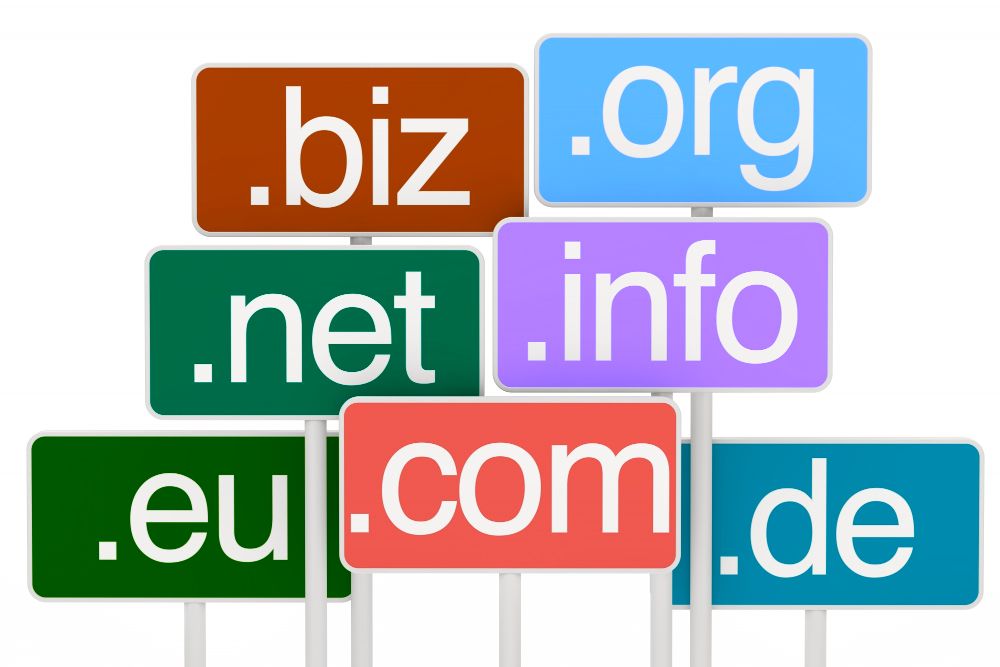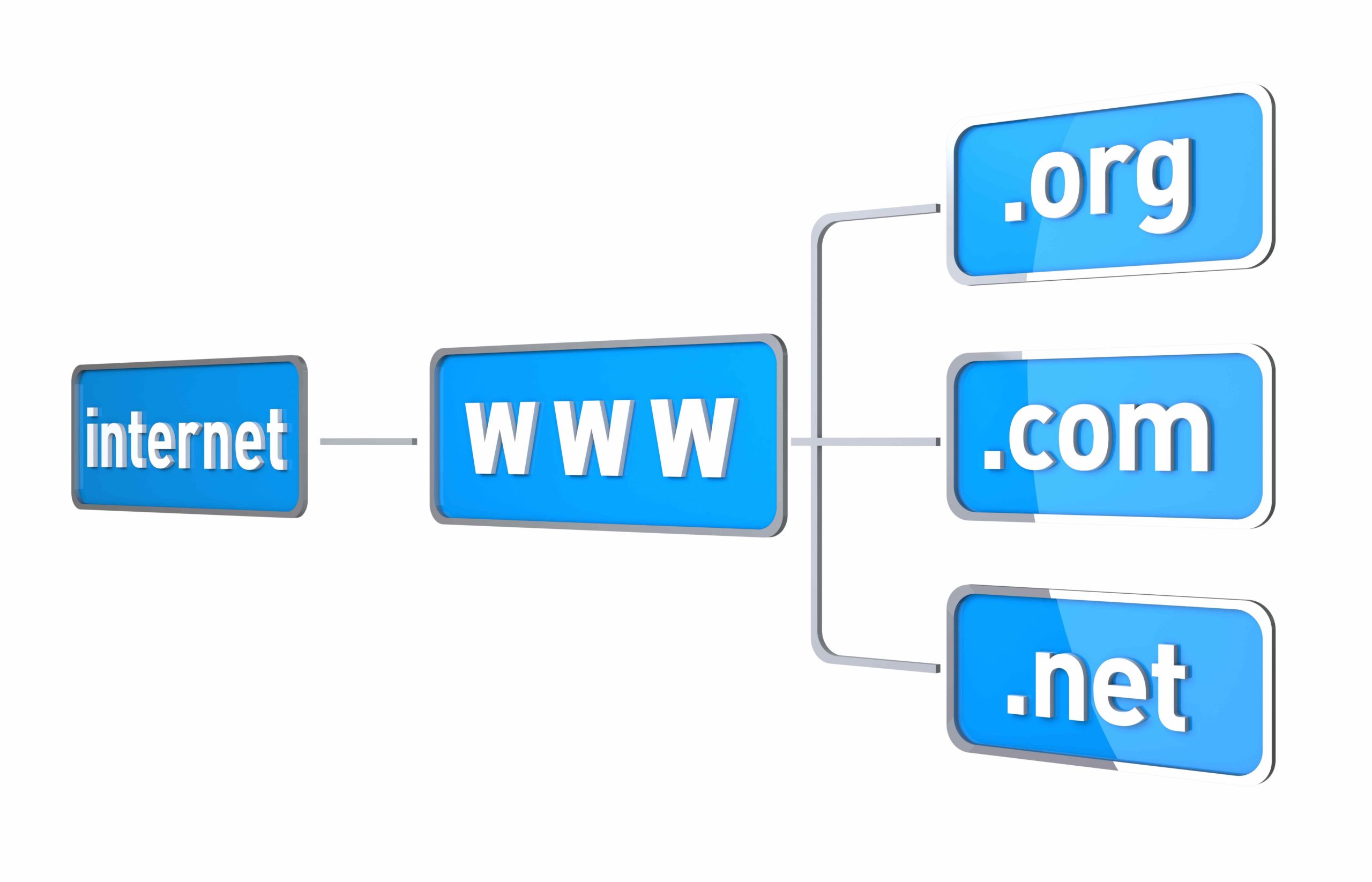
In the digital era, domain names have turned into highly valuable assets. Whether you’re an ambitious entrepreneur looking to offload unused assets or a shrewd investor seeking a profitable sale, it’s crucial to master the art of selling a domain name. From appraising the value of your domain name to skillfully negotiating its sale, you need to be in control of the process. So, here’s a step-by-step guide that will help you unlock the full potential of your domain name.
Key Takeaways
- Before selling a domain name, it is crucial to determine its worth. Understanding the value of your domain will help you price it appropriately and attract relevant buyers.
- Selecting a suitable marketplace for your domain is essential. It is also possible to use a domain broker to reach a wider audience.
- Employing psychological pricing techniques, such as pricing domains just below round numbers, can make them more appealing to potential buyers.
- Creating detailed and attractive listings can attract serious buyers. Highlighting key factors like the domain’s niche, traffic, and SEO authority can make it more appealing.
- Keeping up-to-date with market trends and adjusting your strategy accordingly can increase your chances of success. Monitoring the domain market, attending conferences, and participating in forums can provide valuable insights and help you make informed decisions.
Determine the Value Of Your Domain
Determining the value of a domain name involves a combination of factors, including its relevance, market demand, and potential for branding.
Here’s a complete guide on how to assess the worth of your domain:
Keyword Relevance
Consider the keywords or phrases included in your domain name. Domains that contain popular or highly searched keywords relevant to a specific industry or niche tend to have higher value. Tools like Google Keyword Planner or domain appraisal services can help you gauge the search volume and competitiveness of keywords related to your domain.
Domain Extension
The extension of a domain name, such as .com, .net, or .org, can significantly impact its value. Generally, .com domains are the most sought-after and tend to command higher prices due to their universal recognition and perceived credibility. Other extensions may have value depending on their relevance to specific markets or industries. Learn the best domain extensions for SEO in this article.
Length and Memorability
Short, concise domain names are often more valuable because they are easier to remember, type, and brand. Aim for domain names that are easy to spell, pronounce, and recall, as these qualities contribute to their marketability and perceived worth.
Brandability and Brand Potential
Consider the branding potential of your domain name. Does it have the potential to represent a strong and memorable brand? Brandable domain names that are catchy, unique, and evoke positive associations tend to be more valuable. Assess factors such as brandability, marketability, and scalability when determining the value of your domain.
Market Demand and Trends
Research the demand for domain names in your niche or industry. Analyze recent sales data, trends, and market dynamics to understand the current demand for domain names similar to yours. Keep an eye on emerging trends, technologies, and industries that may influence the value of your domain name over time.
Comparable Sales
Analyze recent sales of similar domain names to gauge the market value of your domain. Look for comparable sales data on domain marketplaces, auction platforms, or industry reports. Consider factors such as the sale price, domain characteristics, and buyer demographics to assess the relative value of your domain name.
Professional Appraisal
If you’re unsure about the value of your domain name, consider seeking a professional appraisal from a domain valuation service or expert. These services provide in-depth analysis and valuation reports based on various factors, helping you determine a fair market value for your domain.
By considering these factors and conducting thorough research, you can better assess the value of your domain name and make informed decisions about its sale or acquisition. Remember that domain valuation is subjective and can vary based on individual preferences, market conditions, and buyer perceptions.
Set a Competitive Price
Setting a competitive price when selling a domain name requires a combination of market research, understanding of industry trends, and consideration of the domain’s unique features.
Determine a competitive and realistic price for your domain name based on factors such as its market value, keyword relevance, extension, and demand. Consider pricing strategies such as setting a fixed price, starting a bidding auction, or accepting offers. Research comparable sales and market trends to gauge the appropriate pricing range for your domain.
I recommend you to read our articles How Much Does a Domain Name Cost? and Why Do Some Domains Cost More.
Decide Where to Sell Your Domain Name
After determining your domain’s value, you may consider various ways to sell it. Selling privately, listing on a domain name marketplace or auction site, or engaging a domain name broker are among the most common options.
Let’s examine each of these methods in more detail to provide a complete understanding of their respective benefits and weaknesses.
Sell the Domain Name Privately
Selling domain names on your own may seem daunting at first, but it’s actually quite manageable with a bit of technical know-how. The advantage lies in the fact that potential buyers are actively searching, and all you need to do is make yourself visible to them. When someone decides to purchase a domain name, their first instinct is to search for it on their preferred search engine.
Since you already possess the domain name, create a simple web page yourself or enlist help to do so. It doesn’t need to be complicated; its sole purpose is to indicate that the domain name is available for sale. Provide your preferred contact details, and you’re all set – although you’ll be responsible for handling negotiations and arranging a secure escrow payment method independently. While there are associated fees, it’s essential for transactions involving significant sums of money.
Sell on a Domain Name Marketplace
Selling your domain name on a marketplace can provide access to a larger pool of potential buyers and streamline the sales process. Here’s how to sell your domain name on a domain name marketplace:
Choose the Right Marketplace
Research and select a reputable domain name marketplace that aligns with your goals and preferences. Consider factors such as audience reach, pricing structure, seller support, and success rates of previous sales on the platform. Popular domain name marketplaces include SEO.Domains, Domain Coasters, and Namecheap.
Create a Seller Account
Sign up for a seller account on the chosen marketplace platform. Provide accurate information about yourself and verify your identity as required by the platform. Familiarize yourself with the platform’s policies, terms of service, and listing guidelines to ensure compliance.
Prepare Your Listing
Create a compelling listing for your domain name that highlights its unique features, benefits, and potential value to buyers. Include relevant details such as the domain name, extension, keywords, age, traffic statistics (if available), and any additional assets or features associated with the domain (e.g., website content, social media accounts).
Optimize Your Listing
Optimize your listing for visibility and searchability within the marketplace. Use relevant keywords, tags, and categories to help potential buyers find your domain name. Upload high-quality images or logos related to the domain to enhance its visual appeal and attract more attention.
Promote Your Listing
Promote your listing through various channels to increase its exposure and attract potential buyers. Share it on social media platforms, forums, and industry-related websites. Consider investing in featured listings or advertising options offered by the marketplace to boost visibility and reach a wider audience.
Respond to Inquiries
Be responsive to inquiries and communication from potential buyers. Provide prompt and courteous responses to questions, requests for additional information, or negotiation offers. Build trust and credibility with potential buyers by demonstrating professionalism and transparency throughout the sales process.
Negotiate and Close the Sale
Engage in negotiations with interested buyers to reach a mutually agreeable price and terms. Be open to offers and willing to negotiate within a reasonable range of your asking price. Once a deal is finalized, facilitate the transaction through the marketplace’s escrow or payment processing system to ensure a secure and smooth transfer of ownership.
Transfer Ownership
Initiate the transfer of ownership of the domain name to the buyer following the marketplace’s guidelines and procedures. Provide the buyer with the necessary authorization codes, transfer instructions, and any other documentation required to complete the transfer process. Verify that the buyer has full control and access to the domain name before closing the sale.
Complete the Transaction
Confirm with the buyer that they have received the domain name and are satisfied with the transfer process. Once the buyer has confirmed receipt and acceptance of the domain, release the funds held in escrow or payment account to finalize the transaction. Follow up with the buyer to ensure a smooth transition and address any post-sale questions or concerns.
By following these steps and leveraging the resources and exposure provided by a domain name marketplace, you can effectively sell your domain name and maximize its value in the marketplace.
Sell on Auction Sites
Domain marketplaces aren’t the only venues for selling domain names; auction sites such as Sedo, Dynadot, and GoDaddy also serve this purpose.
Selling a domain name on auction sites can be an effective way to reach a large audience of potential buyers and maximize your chances of a successful sale.
Similar to a standard online auction, a domain seller initiates a listing and establishes a starting price. Afterward, the highest bidder secures ownership of the domain. In instances where the domain fails to meet the reserve price, auction sites permit sellers to engage in counter-negotiations or adjust the price downwards throughout the auction duration.
Sell Through a Domain Name Broker
Selling a domain name through a domain name broker can be a strategic approach, particularly if you prefer a hands-off approach or lack experience in negotiating domain sales. These brokers act as intermediaries, linking you with potential buyers and enabling a smooth transaction.
Here’s a step-by-step guide on how to sell your domain name through a domain name broker:
Choose a Reputable Domain Name Broker
Research and select a reputable domain name broker with a proven track record of successful domain sales. Look for brokers who specialize in your domain’s niche or industry and have extensive experience in facilitating domain transactions. Consider factors such as reputation, expertise, commission rates, and client testimonials when choosing a broker.
Submit Your Domain for Evaluation
Submit your domain name to the chosen broker for evaluation. Provide detailed information about the domain, including its history, characteristics, potential uses, and any additional assets or features associated with it. The broker will assess the domain’s market value and potential for sale based on various factors, including keyword relevance, extension, and demand.
Negotiate Terms and Commission
Negotiate the terms and commission structure with the domain name broker. Discuss fees, commission rates, and any additional services or marketing strategies the broker may offer to promote the sale of your domain. Ensure that you understand the terms of the agreement, including the broker’s responsibilities, obligations, and timeline for selling the domain.
Sign a Listing Agreement
Once you’ve agreed on the terms and commission structure, sign a listing agreement with the domain name broker. The listing agreement outlines the terms of the partnership, including the duration of the listing, commission rates, payment terms, and any exclusivity clauses. Review the agreement carefully and seek legal advice if necessary before signing.
Market Your Domain
Work closely with the domain name broker to market your domain effectively. The broker will leverage their network, resources, and expertise to promote the domain to potential buyers through various channels, including domain marketplaces, industry contacts, and targeted marketing campaigns. Provide the broker with any additional information or assets that may enhance the domain’s appeal and marketability.
Negotiate Offers
Engage in negotiations with potential buyers who express interest in the domain. The domain name broker will handle negotiations on your behalf, presenting offers, counteroffers, and facilitating communication between you and the buyer. Be open to negotiation and consider factors such as the buyer’s budget, the domain’s market value, and the terms of the offer when evaluating offers.
Finalize the Sale
Once you’ve reached an agreement with a buyer, finalize the sale with the assistance of the domain name broker. The broker will handle the paperwork, escrow arrangements, and transfer of ownership to ensure a smooth and secure transaction. Verify that all conditions of the sale are met before completing the transfer of the domain to the buyer.
Close the Transaction
Confirm with the buyer that they have received ownership of the domain and are satisfied with the transaction. Release funds held in escrow to finalize the sale and ensure prompt payment. Follow up with the buyer to address any post-sale questions or concerns and maintain a positive relationship for potential future transactions.
By working with a domain name broker, you can leverage their expertise and industry connections to sell your domain name effectively and maximize its value in the marketplace.
Optimize the Domain Listing
A well-optimized domain listing has the potential to capture the interest of prospective buyers and fetch a higher price. Here are several strategies to optimize your domain listing and maximize its value:
Here are some effective strategies to optimize your domain listing:
- Highlight Key Features: Highlight the unique selling points and benefits of your domain name to attract buyers. Showcase its benefits, such as current traffic statistics, monthly ad revenue, and the availability of associated social media handles. Providing clear details about the domain’s value can increase its perceived worth.
- Use Banner Ads: Design visually appealing banner ads with minimal text, focusing on key information such as the domain price and an exciting call to action. These ads can direct interested buyers to your domain’s landing page or selling site, increasing visibility and driving traffic to your listing.
- Keep WHOIS Records Updated: Ensure that the information in your WHOIS record is accurate and up to date. This record displays ownership details and contact information for the domain, enabling potential buyers to reach out and express interest in purchasing. Keeping this information current facilitates communication and streamlines the sales process.
- Use Social Media: Take advantage of social media platforms to showcase your domain and connect with potential buyers. Create dedicated pages or profiles for your domains, join relevant domain selling groups, and engage with other sellers and enthusiasts. Regularly post informative content, participate in discussions, and network with prospective buyers to increase visibility and engagement.
Using these strategies, you can optimize your domain listing and increase its attractiveness to potential buyers, ultimately maximizing the selling price and a successful transaction.
Use an Escrow Service to Protect Your Domain Name
Using a trustworthy escrow service when selling your domain name can significantly enhance the security of your transaction.
The escrow service serves as a third-party that securely holds the funds during the domain transfer. This not only ensures a safe transaction but also provides some degree of seller protection.
The escrow service also verifies domain ownership, which introduces an additional safety measure to the process.
Once the payment has been confirmed, the escrow service will simplify the transfer process. This ensures an efficient and trouble-free domain transfer.
It’s important to note that certain escrow services offer protection for sellers in the case of intangible assets like domain names, which can help to reduce potential risks.
Therefore, using an escrow service can provide a more secure and reliable way of transferring domain ownership.
Transfer the Domain Name
Once payment is received, proceed with transferring the domain to its new owner. However, before initiating the transfer process, ensure that it meets certain criteria.
The domain must have been registered or transferred more than 60 days ago. Additionally, if any changes to the registrant’s name, organization, or email address were made within the last 60 days, transferring the domain to a new registrar may not be possible.
The transfer process varies depending on the registrar and registration method. Typically, the process takes between 4 to 7 days to complete.
Throughout the transfer process, maintain open communication with the buyer and be available to address any questions or concerns they may have. This will help establish your reputation as a trustworthy domain seller.
Conclusion
Selling a domain name is a process that involves careful planning, research, and effective communication. By understanding the value of your domain, preparing it for sale, and utilizing the right sales platforms and strategies, you can maximize its potential and achieve a successful transaction.
Remember to prioritize transparency, professionalism, and responsiveness throughout the selling process to build trust with potential buyers and ensure a smooth and mutually beneficial transaction.

































































